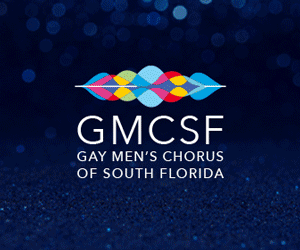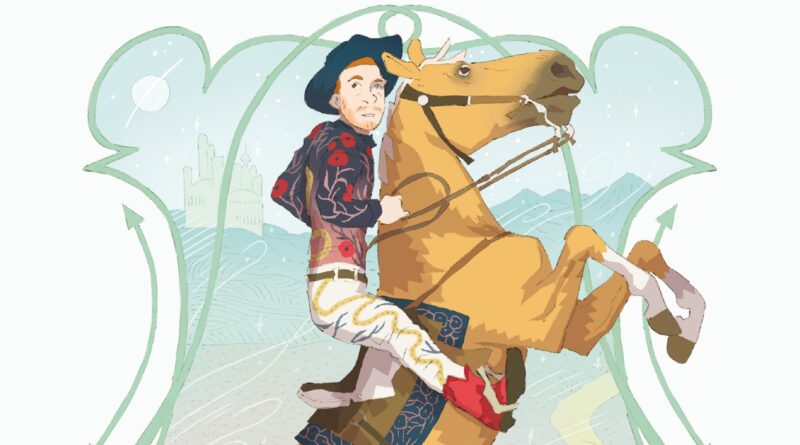
Comics Corner – ‘Trick Pony’ offers a soulful take on the gay cowboy archetype
The image of the cowboy has been mythologised in popular media for decades, from cinematic Westerns focusing on ornery gunslingers, to the likes of Red Dead Redemption in the field of gaming. Yet despite the overt heterosexuality of nearly all cowboy characters – the obvious aside – there have been subversive homoerotic depictions for almost as long.
The history of, and reasoning behind, the idea of the ‘gay cowboy’ is the stuff of in-depth analyses and academic papers, but a common factor has been putting a queer stamp on the prototypically masculine image. Beyond early erotica, where artwork by the likes of Tom of Finland embedded the iconography in LGBTQ+ culture, recent years have seen the likes of cowboy-themed challenges on RuPaul’s Drag Race and notable artists such as Lil Nas X taking the aesthetic and giving it an unabashedly gay twist. It’s not so much reclamation as it is carving out space for gay identities and representation where, especially in America, it’s less accepted or expected.
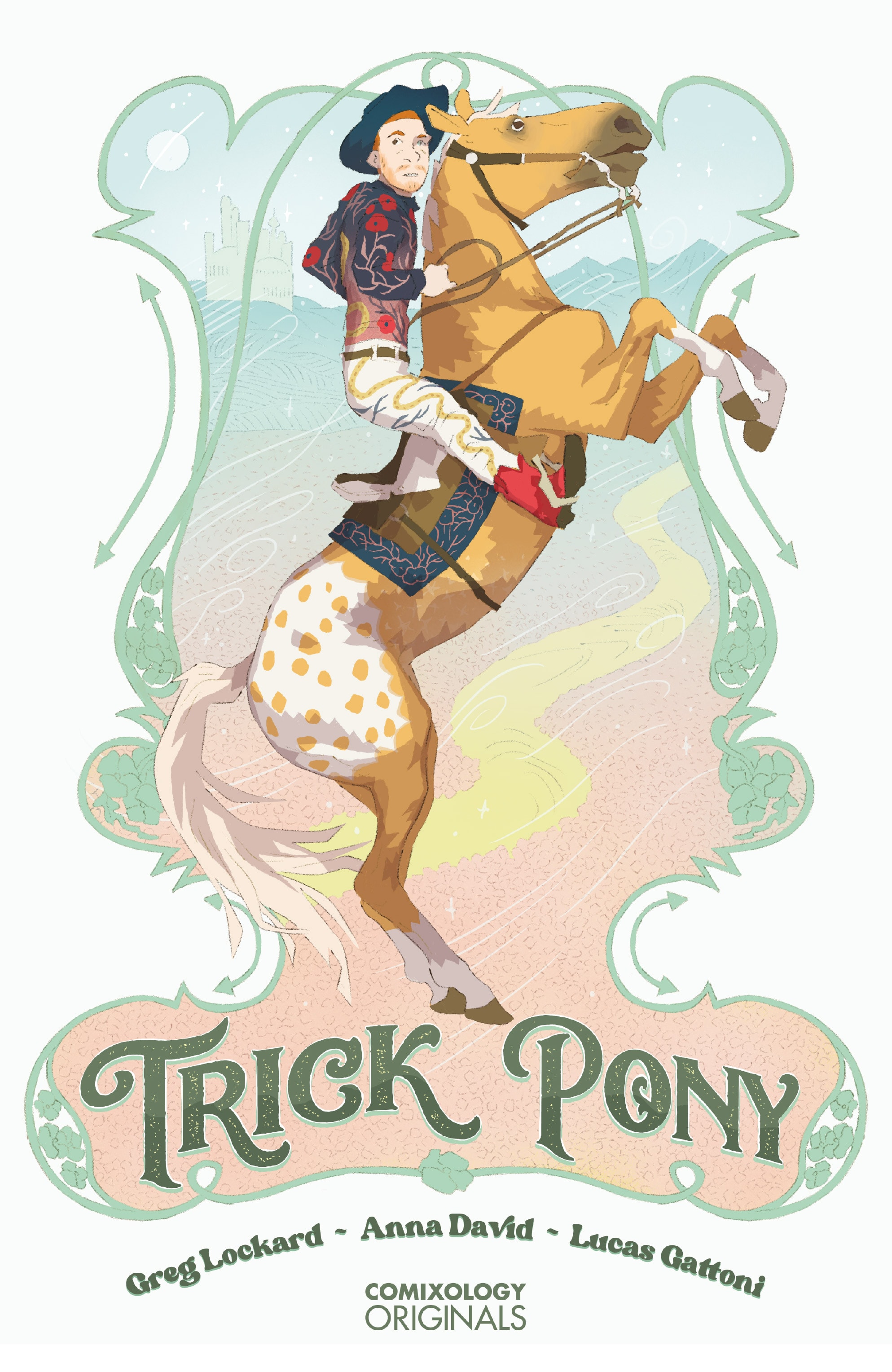
Comics, however, are a bit behind the times. With the notable exception of Marvel’s extremely awkward revamp of Rawhide Kid in 2003 – reimagining its 1950s cowboy hero as a gay man, and releasing the title under its adults-only MAX imprint seemingly only because the protagonist was a bit camp – there’s not been a great deal on offer. Enter, then, Trick Pony, the latest work from writer Greg Lockard and artist Anna David, an original graphic novel focusing on “a washed-up rodeo star who embarks on a road trip that will force him to face his past and present.”
The book follows Jimmy Thomas, a stunt rider and rodeo performer whose hard partying is almost as dangerous as the tricks he pulls off as the star attraction at the Electric Rodeo. After a bad fall during a show, Jimmy is already re-evaluating his career when a call from his mother telling him his father is in hospital pulls things into perspective. After another night of heavy drinking, he sets off back to his old family home – not by car or flight, but on horseback, riding his loyal steed Emmylou all the way.
With its focus on cowboys and rodeos, Trick Pony may seem to be a significant departure for writer Greg Lockard after his earlier Liebestrasse, which was set in Germany during the years leading up to World War II. However, look beyond the genre shift and this latest work touches on similar themes of isolation, lost loves, and regret.
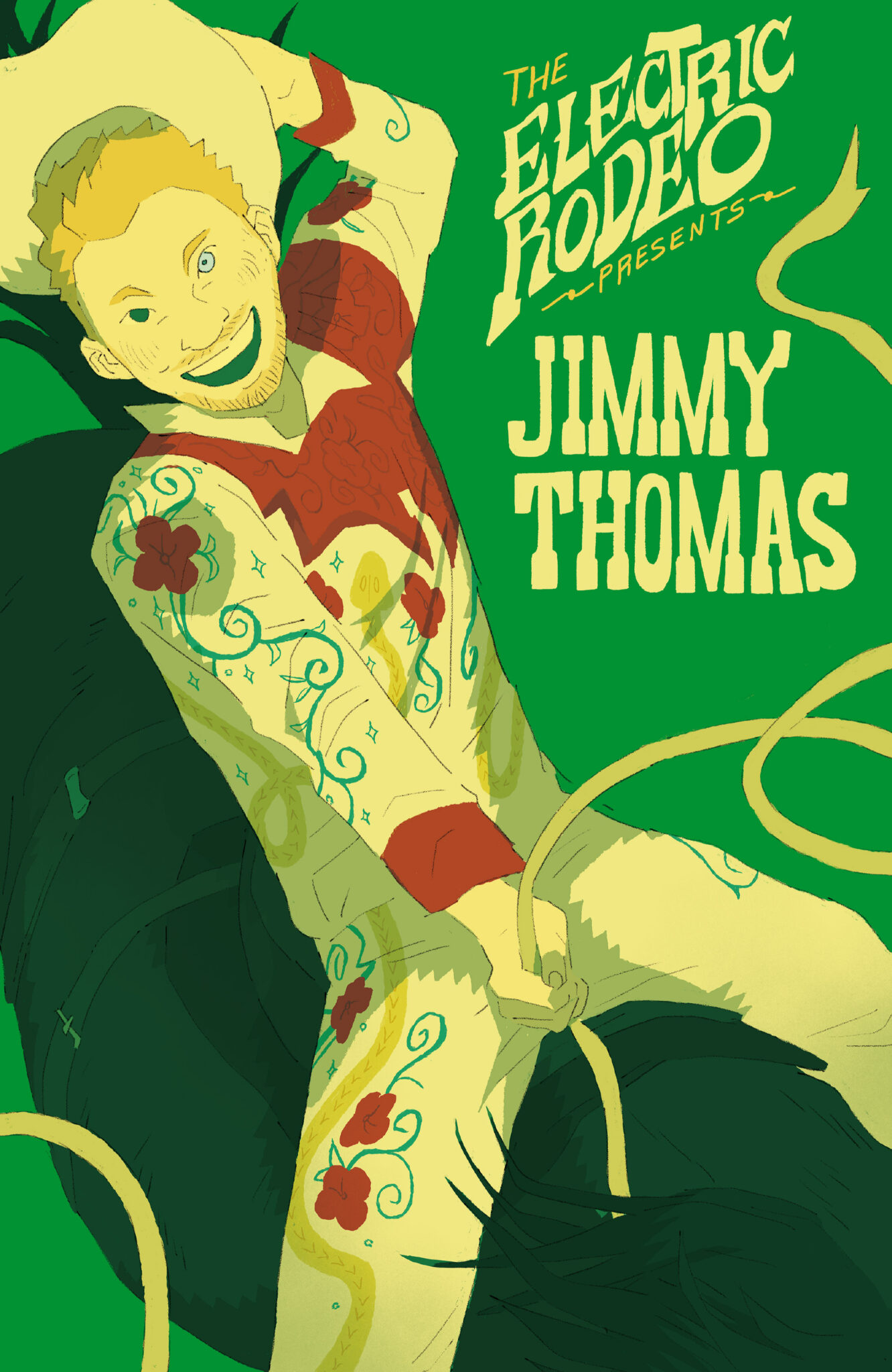
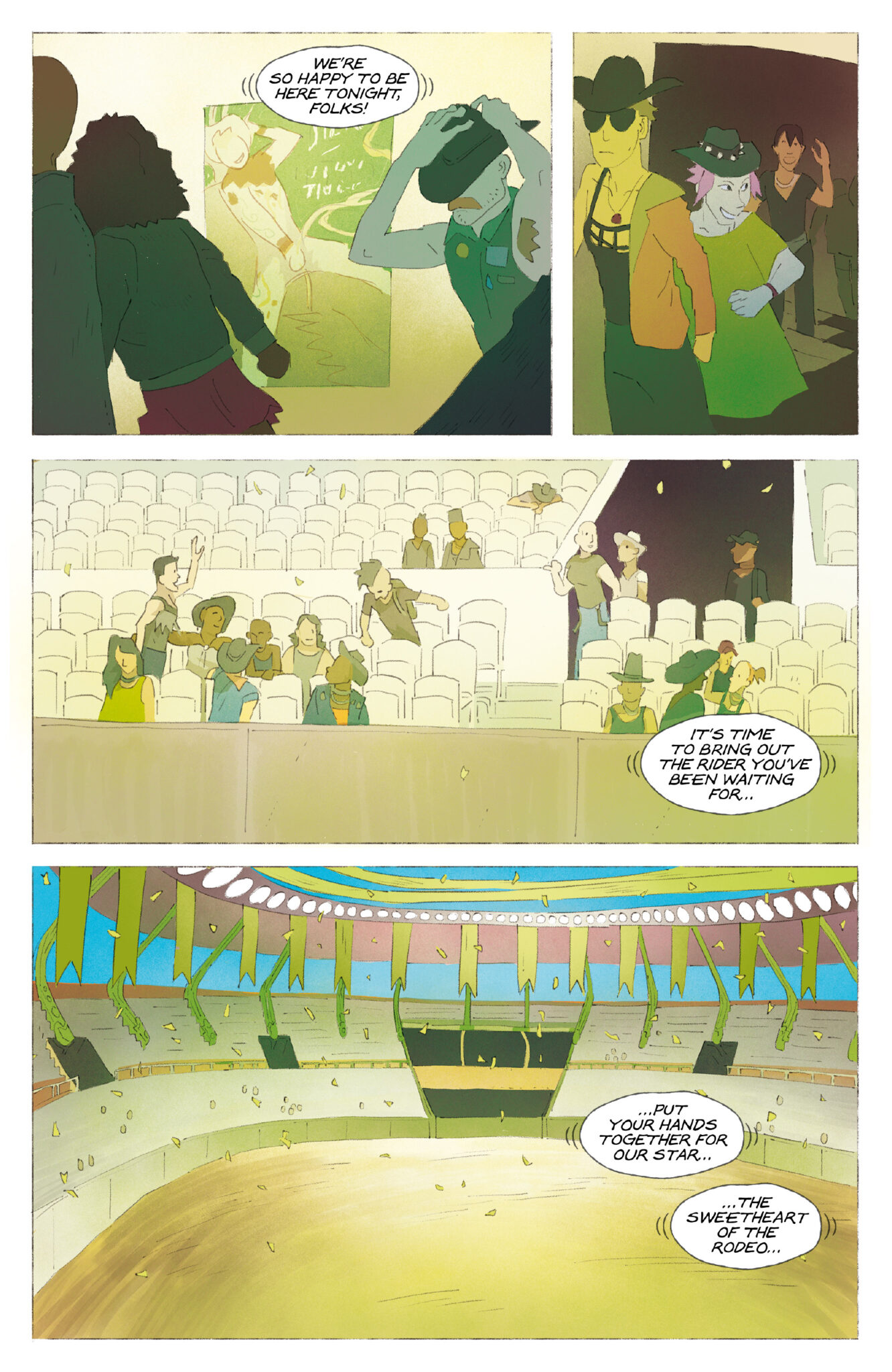
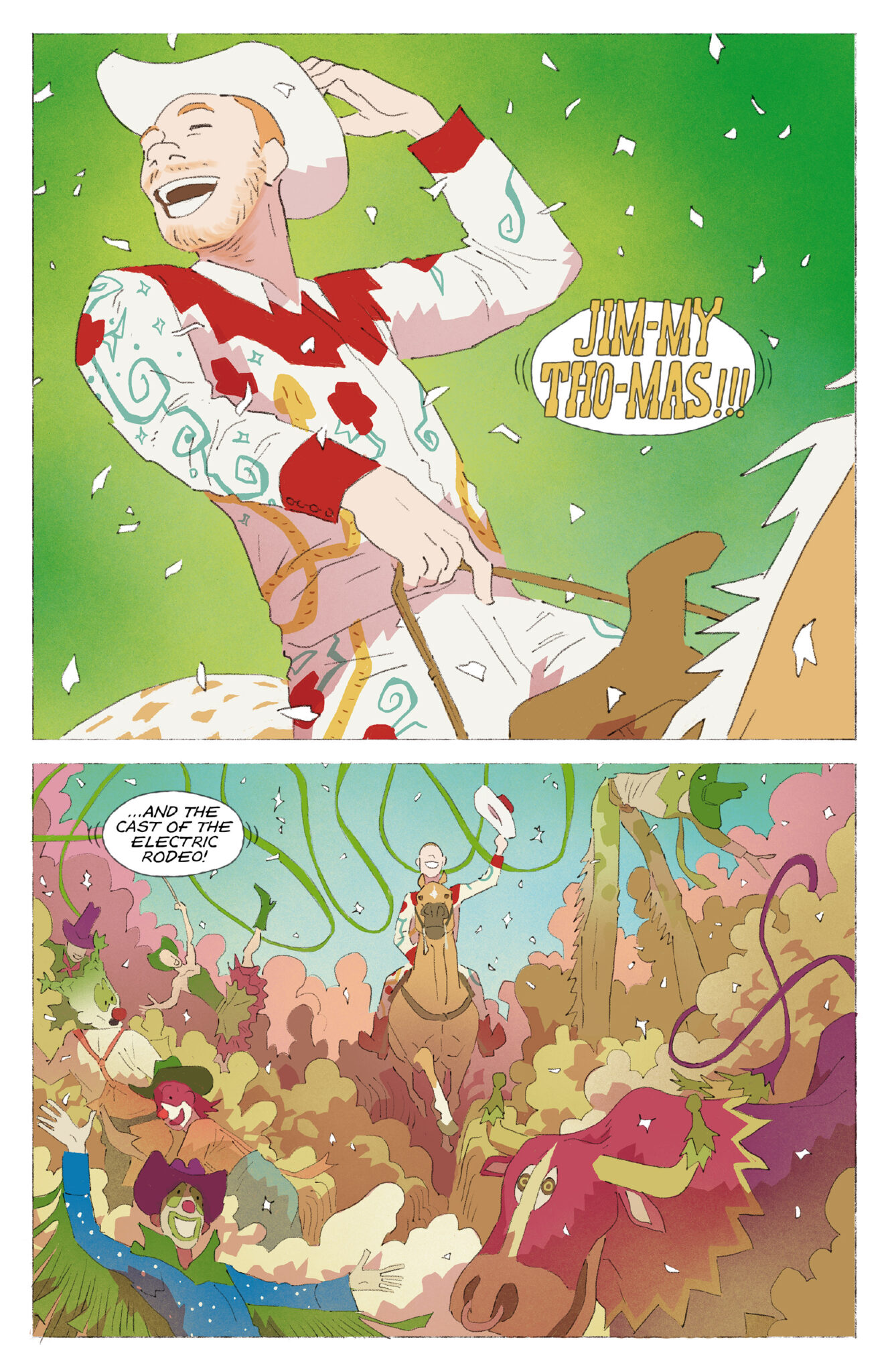
Jimmy’s journey is one fuelled by self-reflection, with every step closer to his past tinged with recollections of his youth, and his first boyfriend Zeke. Haunted by might-have-beens, Jimmy recalls the pair’s plans to move from their small town to the big city together, both dreaming of being movie stunt riders, until a serious injury put Zeke’s ambitions on hold. It’s a relationship he never seemed to get over, his raucous years and – it’s implied – high number of casual partners an attempt to fill an emotional void.
There’s a sort of dreamlike quality to Trick Pony, one that blurs the lines between Jimmy’s imagination and recollections, and the hallucinatory visions one can imagine being subject to while riding horseback under the baking desert sun. It feels equal parts magical realism and dustbowl fantasy, where scenes meld into one another with no real indication of what, if anything, is real. A drunken party shifts to an existential conversation with a gender-ambiguous mermaid; a talking wolf encountered in a dry canyon lures Jimmy to a handsome farmer, who offers shelter and companionship for a night; a race against an armoured knight that may be an actual dream or something more profound.
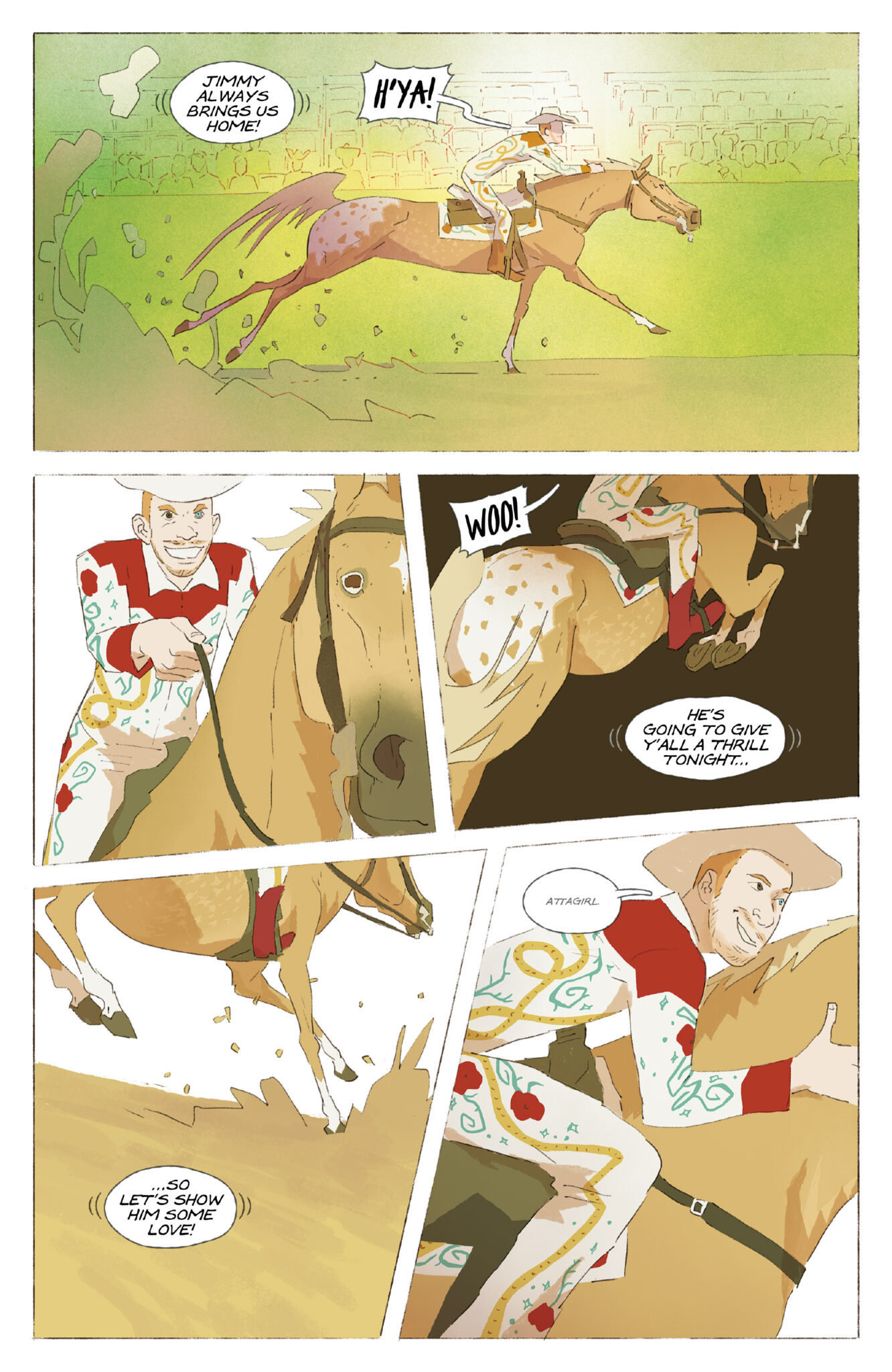
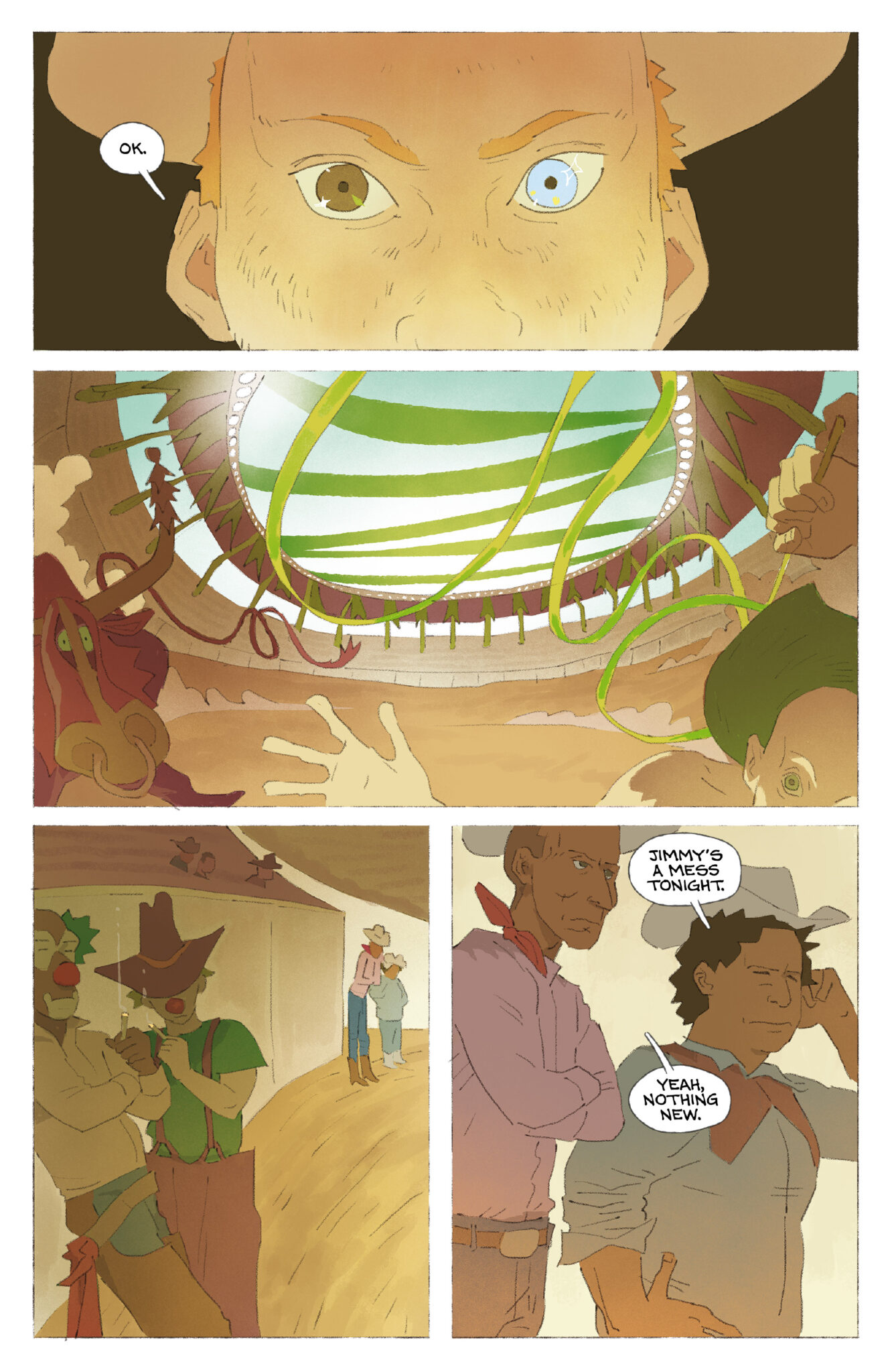
This is all aided by Anna David’s almost ethereal artwork on the book, blending wispy linework and muted colours with strange, almost alien vistas that serve as the vast expanse of plains and mountains along Jimmy and Emmylou’s ride. There’s something of a fairy tale quality to the end result – a shot where Jimmy rides out of the city on Emmylou evokes the Emerald City of Oz, the nameless metropolis all lit up in green, while even the more grounded scenes, such as the opening rodeo show, have an otherworldliness to them, with panels filled with bizarre, half-glimpsed background characters.
Perhaps the biggest fantasy of all in Trick Pony is how accepting other people are of Jimmy’s sexuality. In scenes where the adult Jimmy is engaging in arguably self-destructive behaviour, no-one bats an eyelid at him making his way through a crowded room of admirers or shamelessly flirting with reporters, which could be seen as reflective of more permissive attitudes in the present day.
More surprising are the flashbacks to his teen years with Zeke, where the boys’ not-so-furtive kisses are met with nonchalance from family and peers. While there’s no real sense of time or period, it strikes as an idealised take. Still, given how the book plays with the reader’s understanding of what is real or illusion, the ‘memory’ may be as unreliable as anything else we see – Jimmy choosing to believe that at least some part of the past he left behind was emotionally healthy. Ultimately, it’s up to the reader to share in that belief or not.
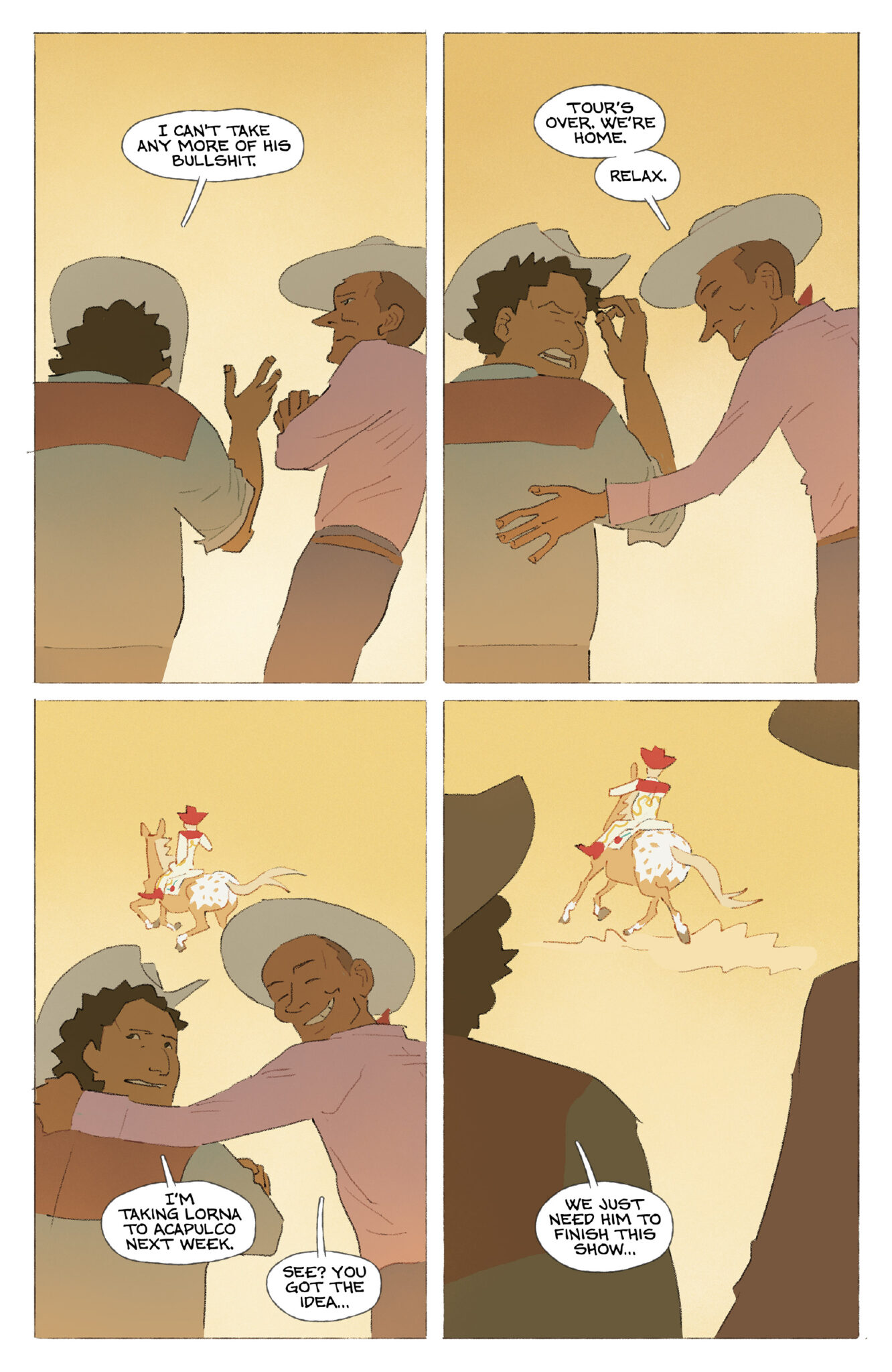
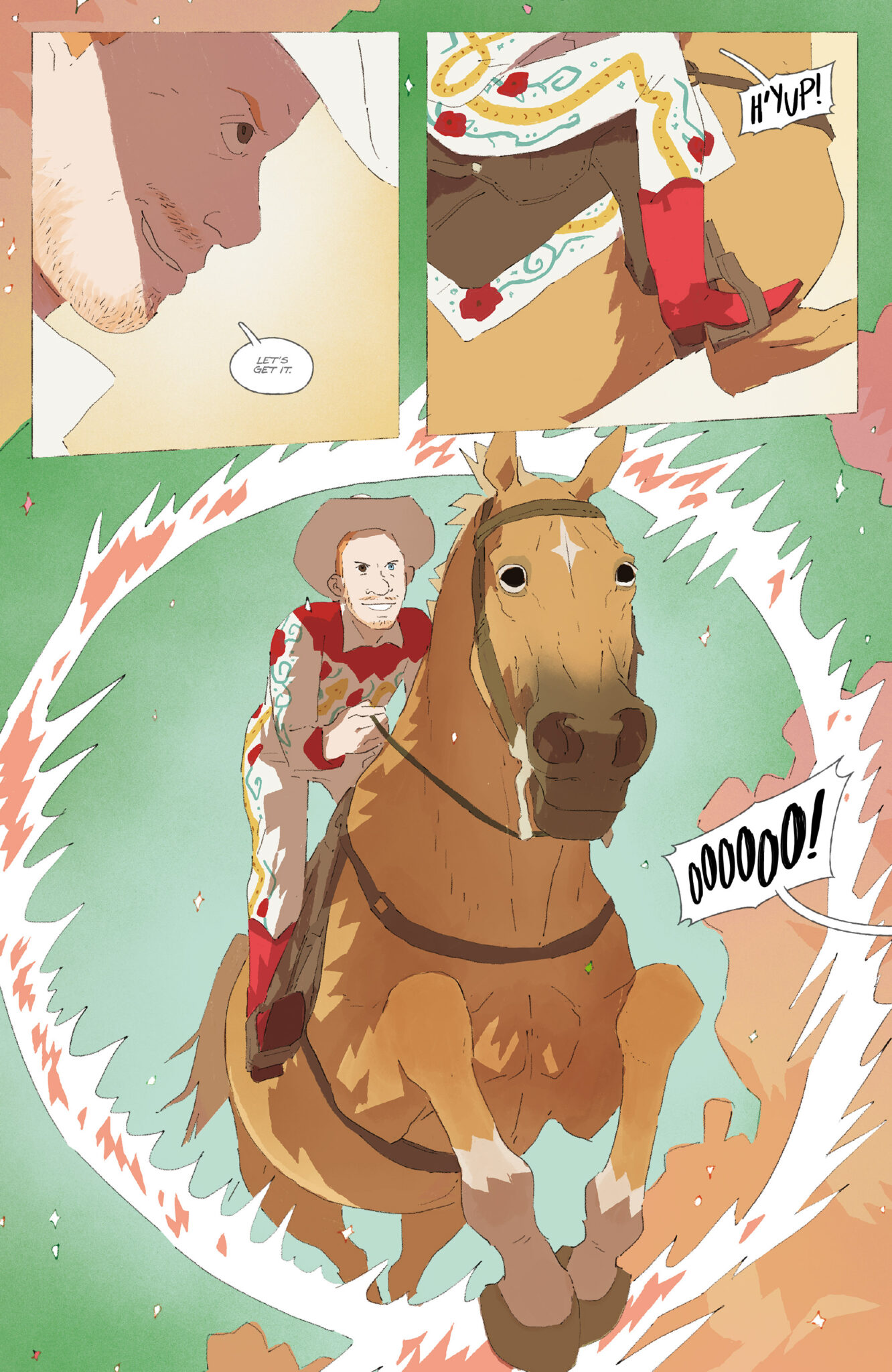
Being rooted in the past seems to be Jimmy’s defining trait, which loops back around to how Trick Pony approaches the proliferation of ‘gay cowboy’ imagery. Jimmy’s entire persona is a modern day echo of the stereotypical cowboy, but in lieu of actually protecting cattle or chasing bandits – skills not exactly in high demand nowadays – he’s swapped “the ranch for showbiz”. Out goes gunplay, in come rope tricks, but despite the sanitised cowboy performance he sells to crowds at the rodeo, Jimmy very much still fills that role. That he’s also an openly gay man who leaps horses through flaming hoops while wearing fabulously flamboyant Nudie suits (no, that’s not what you think) feels, oddly, almost incidental – there’s an almost aching longing for the idea of being able to live a cowboy’s life, despite the march of time.
Trick Pony is an unusual graphic novel, offering a not-quite-lucid experience that may leave some readers perplexed on first reading – the somewhat unnatural flow between scenes feels disorienting, possibly deliberately so. Yet it’s also mesmerising, Lockard’s ideas and David’s visuals lingering in the mind as much as Jimmy’s past does in his. It’s a book with as many interpretations and as much meaning as you’re willing to give it, but beneath all that strangeness, it’s also a book about seizing love wherever you find it, and riding off into the sunset.
Trick Pony is published by Comixology Originals, available digitally now
This article was originally published on our sister site, Gayming Magazine.








